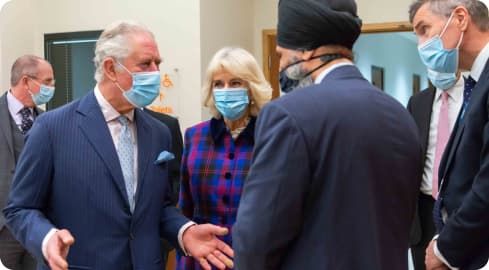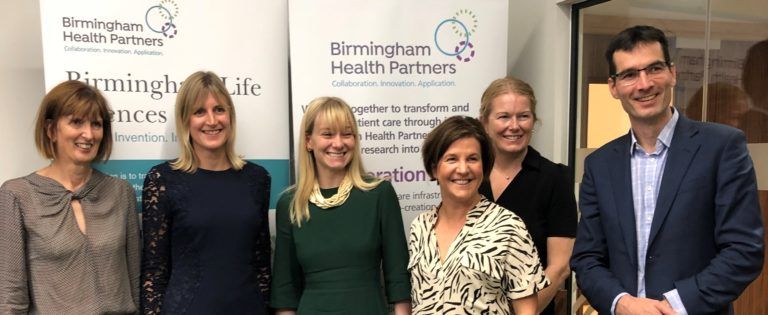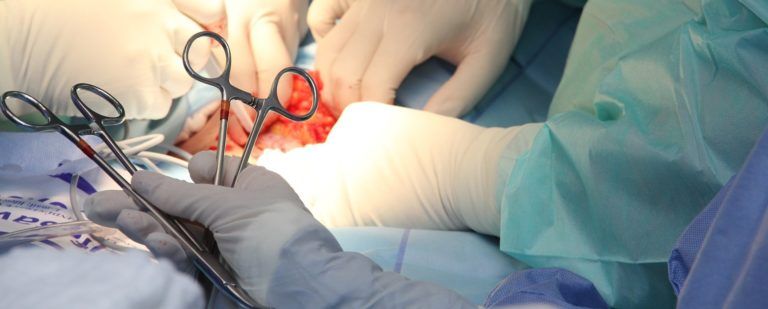Their Royal Highnesses The Prince of Wales and The Duchess of Cornwall visited the COVID-19 vaccination centre for University Hospitals Birmingham NHS Foundation Trust (UHB) staff on February 17 2021.
Their Royal Highnesses, joined by The Right Honourable Matt Hancock MP, Secretary of State for Health and Social Care, visited the hub here at the Institute of Translational Medicine with key members of the UHB vaccine research team, vaccine rollout team, and members of the public who have taken part in COVID-19 vaccine research in the West Midlands. They also saw people in the top four priority groups receiving their first dose of the vaccine.
Dr David Rosser, Chief Executive Officer at UHB, said: “The Trust is working with our colleagues at Birmingham and Solihull Clinical Commissioning Group, GP partners, pharmacies, Millennium Point and Aston Villa Football Club on the continued successful rollout of the COVID-19 vaccine programme. To date, hundreds of thousands of people across Birmingham and Solihull have received their first dose. As supply increases and eligibility widens, we are looking forward to vaccinating more people and bringing us closer on the path back to normal life.”
Safe and effective vaccines were developed in record time thanks to vaccine research which began in early 2020. The vaccine developed by the University of Oxford and Astrazeneca, one of two currently in use in the UK, was trialled on more than 20,000 people in 2020.
Recruitment to the Oxford vaccine trial was led in the West Midlands by UHB, with almost 1,000 people taking part in vaccine research in the region – the highest total of any area in the country.
Dr Chris Green, UHB Consultant in Infectious Diseases and the trial lead in the West Midlands, said: “The rollout of vaccines is only possible because of the help of the many members of the public who were willing to take part in clinical trials.
“Thanks to them, the successful results are now leading to a wider rollout which will result in protection for the public, and a reduction in the risk of the disease that will allow us to return to a more normal world.
“Alongside the rollout, vaccine research continues with recruitment to new trials, including the testing of other vaccines and the potential to mix and match already approved vaccines.”
Health Secretary, Matt Hancock said: “I was delighted to visit the Queen Elizabeth Hospital in Birmingham alongside their Royal Highnesses the Prince of Wales and the Duchess of Cornwall, and to thank the staff for their heroic efforts throughout the pandemic.
“From treating those suffering from COVID-19 to recruiting record numbers of patients to take part in vaccine clinical trials, each and every one of those working on the frontline has played an incredible role in our nationwide fight against this virus.
“The University Hospitals Birmingham NHS Foundation Trust has played a vital part in helping us reach our target to vaccinate the top four priority groups by mid-February, delivering over 200,000 doses of the vaccine to the most vulnerable people in their community – a truly fantastic achievement.
“There is still more to do, and I urge anyone eligible for the vaccine to come forward and take up their appointment.”







